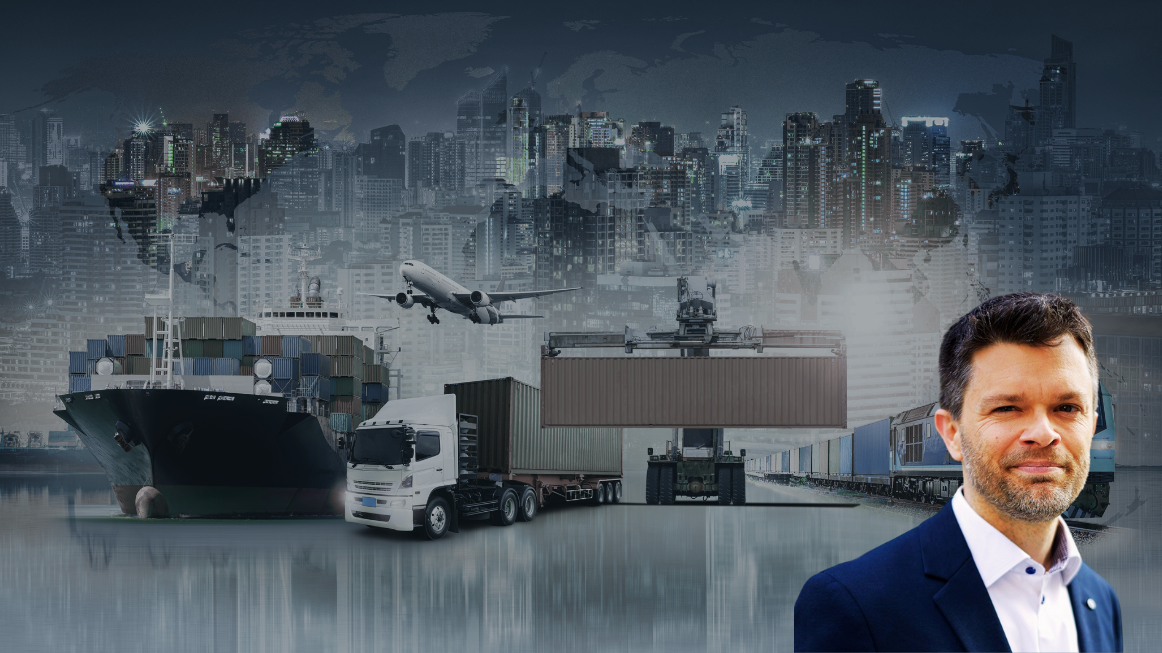
As Chief Corporate Officer at Transport UK Group, Edward Walker has had a front-row seat to the seismic shifts shaping transport in recent years. From navigating the unprecedented disruption of the pandemic to grappling with the realities of sustainable infrastructure and unlocking the potential of AI, Edward offers a frank and insightful perspective on the future of UK transport. His reflections point to the urgent need for integration, adaptability, and strategic clarity as the industry heads into a decade of transformation.
Looking back, what’s been the most transformative change in the sector, and how has it shaped operations today?
Without question, the most transformative change I’ve witnessed has been the impact of Covid-19. Beyond the immediate operational and financial shock, the long-term consequences are still unfolding. We saw a dramatic shift in strategy, governance, and financial modelling across the entire sector, and those shifts will continue to shape us for at least another decade.
What’s been particularly damaging is the loss of commercial talent from the industry. Valuable expertise left during the pandemic, often moving into other sectors altogether. Losing industry knowledge and capability is always hard to reverse.
Equally concerning was the lack of risk planning for events of this magnitude. Prior to 2020, nobody had truly factored a pandemic into their commercial or contractual risk models. Going forward, the private sector simply won’t bid for large contracts without clarity from the government on how such future events will be handled. The pandemic redefined what resilience means in transport and how operators model it.
What’s the biggest sustainability challenge in transport, and how is your organisation responding to it?
The biggest challenge lies in the disconnect between ambition and infrastructure. There’s a clear vision within the industry for a more sustainable, electrified transport network, but our capital delivery and the country’s energy systems are nowhere near ready to meet it.
I was struck recently by the realisation that the push toward full electrification in transport could actually increase the risk of entire lines being temporarily shut down, not due to failure, but because the power supply can’t keep up. We need to think differently about how we generate, store, and secure energy, and we need to do it faster than traditional infrastructure models allow.
The idea that we can build something today and expect it to still be fit for purpose in 25 years is flawed. The pace of technological change and shifting demand means we’re constantly trying to retrofit yesterday’s infrastructure to tomorrow’s needs, and that’s simply not sustainable.
Over the last year, Transport UK has implemented our sustainable strategy across our operations, allowing us to collectively measure our impact and move forward as one group. Creating new sustainability executive meetings enables us to drive action on delivering on our strategy.
How do you balance commercial performance with the sustainability imperative, and where are the trade-offs or opportunities?
Sustainability is essential, but can’t come at the cost of viability. We need functioning, economically stable businesses before we can talk about green transformation. That starts with fixing the fundamentals: delivering for customers, ensuring safety, and creating models that can cope with growing demand.
It might be unpopular to say, but in rail especially, we’ve got a lot of basics that still need fixing. Unless the core operations are sound, i.e. reliable services, financially sustainable models, customer satisfaction etc., it’s very difficult to layer on meaningful environmental initiatives. At Transport UK, we’ve worked very hard to ensure the fundamentals are strong, enabling us to take real action on the sustainability front. We’ve worked to build a business that serves our customers and the environment and sets the track for the next generation.
A thriving, growing, customer-focused business is the foundation for sustainability, not the other way around.
Where is AI already making an impact, and what excites or concerns you about its future?
Of course, we have been using AI in our business for some time. It is fully embedded in day-to-day contracts and tasks and leads to faster analysis and better outcomes for clients and customers.
However, things are moving at pace in the world of data and AI. Some of the most exciting developments I am now seeing involve AI being used to better deploy resources in the railway to where they are most needed. Data sources from outside the rail industry, such as energy usage, residential home data and shopping habits, can be used with train planning data to ensure we can resource the right stations with the right people at the right times. Now that is truly exciting.
Looking ahead to 2030, what shift will most define the future of transport, and why?
Integration, without a doubt.
It’s still astonishing that in 2025, planning a journey from A to B can involve multiple apps, inconsistent ticketing systems, and disconnected services. That’s not how customers think. They don’t care who operates which leg of the journey - they want to get where they’re going.
Integrated transport and integrated retail are the future. It’s about designing systems that start with the customer, not the operator. That means frictionless planning, booking, and travelling across all modes of transport. If we can get that right, the impact on convenience, sustainability, and commercial performance could be transformative.
